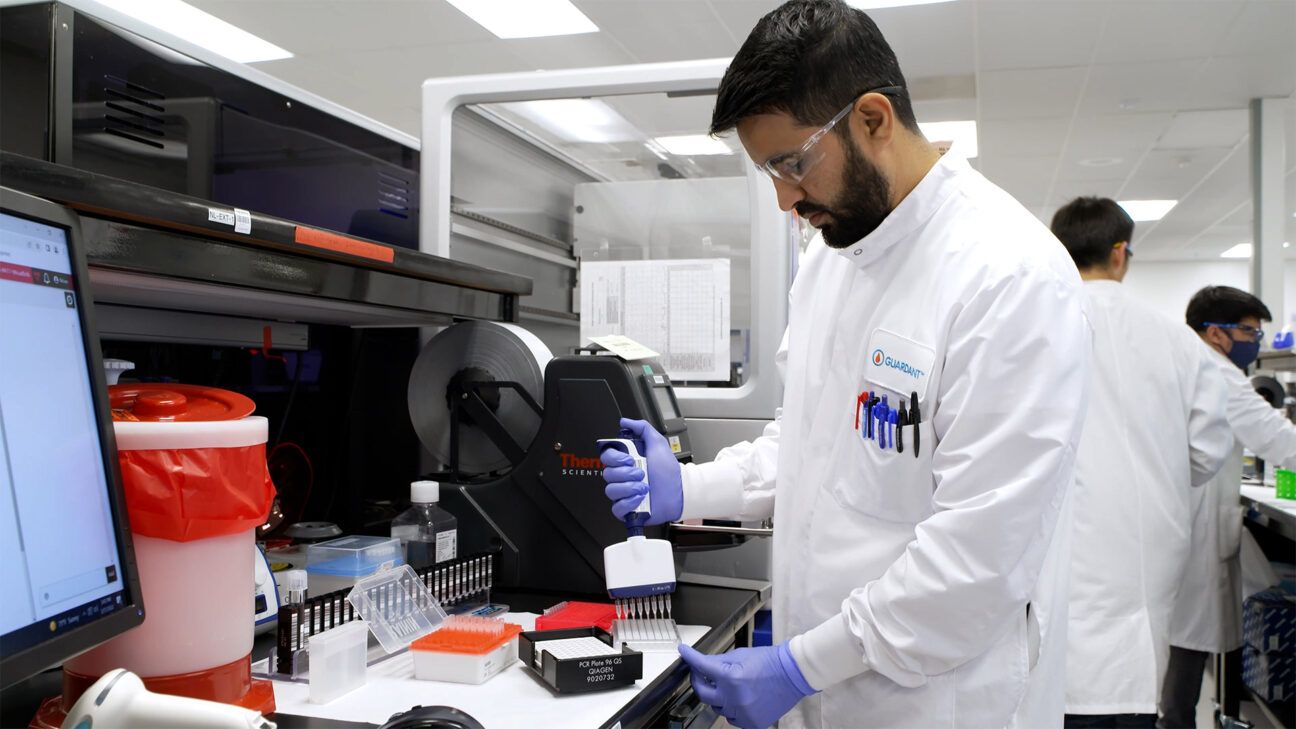
- The FDA has approved a new colorectal cancer blood test by Guardant Health for Medicare coverage.
- The test, called Shield, looks for “free-floating” fragments of cancer DNA in the bloodstream.
- The Shield test also offers accessibility and convenience at the cost of reduced accuracy.
- The ECLIPSE clinical trial, which preceded the FDA approval, found that the test accurately confirmed 83.1% of colorectal cancer cases.
A new blood test for colorectal cancer was approved this week by the Food and Drug Administration (FDA), making it the first test of its kind to meet requirements for Medicare coverage.
Guardant Health’s blood test, called Shield, is a noninvasive blood test that is touted as a simple, convenient alternative to other forms of colorectal cancer (CRC) screening.
Colon cancer screening is a notoriously tricky issue: fewer than 60% of adults in the United States ages 45 and 75 receive screening for the disease, despite it being the second-leading cause of all cancer-related deaths. Yet colorectal cancer is highly treatable when detected early.
Hesitancy around colorectal cancer screening may stem from the belief that colonoscopies and stool-based tests are onerous or unpleasant. However, finding a non-invasive colorectal cancer screening test that is both accurate and noninvasive has proved challenging.
“The persistent gap in colorectal cancer screening rates shows that the existing screening options do not appeal to millions of people,” Daniel Chung, MD, a gastroenterologist at Massachusetts General Hospital and professor of medicine at Harvard Medical School said in a press release from Guardant Health.
“The FDA’s approval of the Shield blood test marks a tremendous leap forward, offering a compelling new solution to close this gap. This decision will help make screening tests more broadly accessible and propel blood-based testing and CRC screening into a new era,” Chung continued.
Can a blood test for colon cancer replace a colonoscopy?
Shield’s greater ease of use comes with a not-insignificant trade-off in screening accuracy.
Medical professionals contacted by Healthline said that the potential for missed diagnoses is concerning and that the test should not be viewed as a replacement for a colonoscopy.
“Most of us look at these types of tests as adjuncts or ‘helper’ tests to get more people screened and then possibly get more colonoscopies if they were positive,” Ben Park, MD, PhD, director of the Vanderbilt-Ingram Cancer Center at Vanderbilt University, told Healthline. Park was not affiliated with the Shield research but disclosed that he is currently engaged in separate clinical trials involving Guardant Health.
“The danger of these types of tests is if they’re negative, they’re not necessarily really negative,” Park said.
There is a shared sense of enthusiasm among doctors about the potential for Shield to get more people screened for colorectal cancer more frequently. But exactly how the test will fit into current recommendations is less clear.
“The gold standard is still very much the colonoscopy. So, I would be cautious counseling patients that we don’t see this as an equal alternative to colonoscopy,” Christopher Chen, MD, an assistant professor of oncology and director of the Early Drug Development at the Stanford Cancer Institute, Stanford Medicine, told Healthline.
Uri Ladabaum, MD, director of the Gastrointestinal Cancer Prevention Program at Stanford Medicine told Healthline, “Guardant Shield is expected to have substantial net benefit if it extends CRC screening to persons who are unwilling or unable to undergo screening colonoscopy or stool-based screening.”
However, if Guardant Health’s Shield were to substitute for screening colonoscopy or stool-based screening in those willing to use them, this is expected to worsen outcomes,” Ladabaum noted.
Blood test detects colon cancer with 83% accuracy
The approval of Shield arrives on the back of the ECLIPSE trial, the results of which were published in the New England Journal of Medicine in March 2024.
The trial included nearly 8,000 participants between the ages of 45 and 84. Shield is what’s known as a cell-free DNA test (cfDNA test), which looks for “free-floating” DNA molecules that are shed by cancer cells into the bloodstream.
The ECLIPSE trial found that in patients with CRC, confirmed by a colonoscopy, Shield accurately identified the cancer in 83.1% of cases. That means a significant number of participants with CRC (16.9%) received a false negative test result.
“You may not think that sounds like a big number, but when you translate it into the hundreds of thousands of patients who get diagnosed with colon cancer every year in this country alone, that is a significant number,” Park said.
“It could meaningfully risk missing a significant number of diagnoses,” Chen noted.
The concern for doctors is what happens when someone gets a false negative test result who isn’t regularly getting a colonoscopy as well.
“That’s where the potential danger is where, you know, we could potentially be giving false security or senses of security,” Park said.
The test also doesn’t test for pre-cancerous lesions, only detecting them in about 13% of cases. It is therefore not regarded as a preventive screen, since it only detects cancer that is already present.
Despite these caveats, the test represents a new opportunity to increase screening and adherence for a dangerous, pervasive form of cancer. But its true value will be found in expanding screening as an adjunct to colonoscopy, not replacing it.
The takeaway
A blood test for colorectal cancer, Guardant Health’s Shield, has just been approved by the FDA for Medicare coverage, putting the test in reach of many more people in the U.S. at risk for developing the disease.
The blood test is a convenient, non-invasive alternative to other forms of colorectal cancer screening that are perceived as time-consuming or unpleasant.
Doctors caution that the test should not be viewed as a replacement for the “gold standard” colonoscopy, but rather an adjunct test that can help to accommodate certain patients who might not otherwise be screened.
